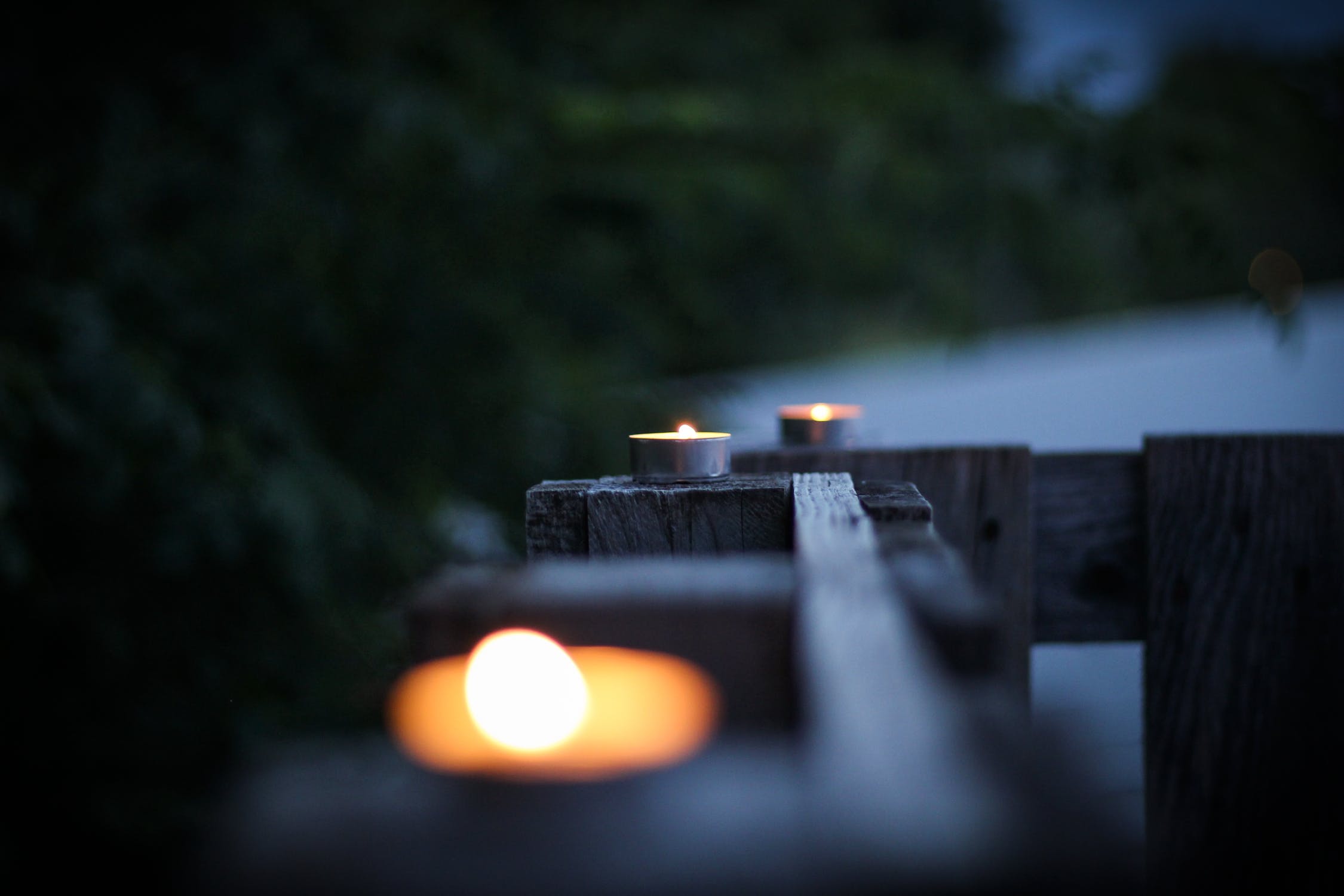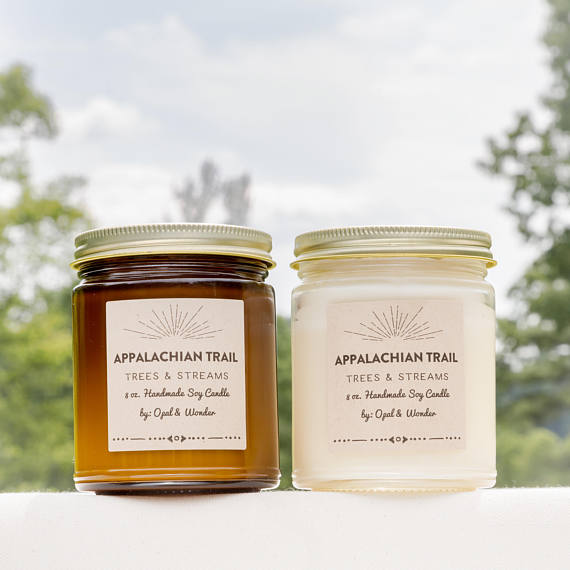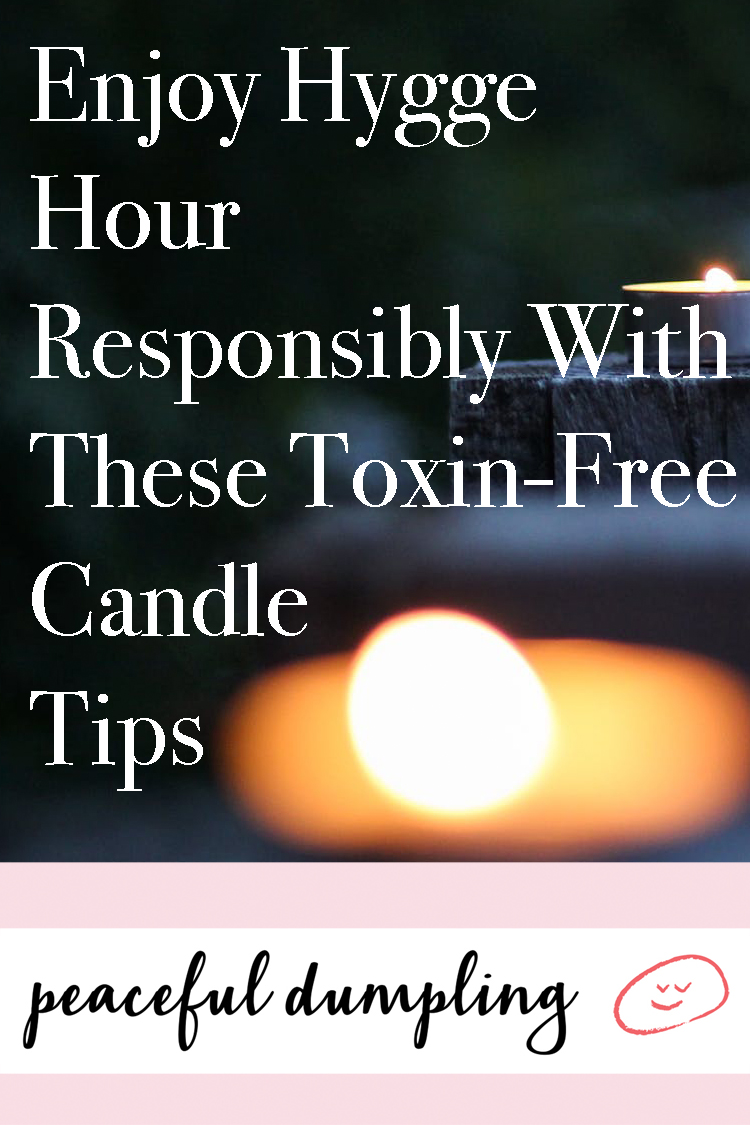A version of this article was published on The Eco Hub.

Candles often play a special role in relaxation rituals. The soft light from their flame is a respite to weary eyes, especially if you spend most of your time under fluorescent lighting. Like all goods, however, it’s important to seek companies that use materials that won’t harm your health (sigh, so much for relaxing) or the earth. Some candles (not unlike incense) may be harmful to your health and the environment. The following are two of the most polluting candle ingredients (avoid these!), plus a healthier option.
Parrafin Wax
In North America, we spend about $2 billion in candles every year, and the majority of them are made from paraffin. Scented candles like “pine scent” and “vanilla bean” are filled with unsaturated hydrocarbons. The U.S. Environmental Protection Agency reports that these chemicals are linked to endocrine-disruption and can have serious implication to our lungs.
Unscented paraffin is no better. When we burn these types of candles we are exposing ourselves to formaldehyde (which is cariogenic), benzene and toluene (a neurotoxin). AVOID like the plague.

Palm Wax
Is a BIG no-no for many reasons. First off, in Indonesia and Malaysia, local governments have allowed palm producers to ravage local areas to keep up with the demand for palm oil on this side of the world.
“Between 1967 and 2000 the area under cultivation in Indonesia expanded from less than 2,000 square kilometers (770 square miles) to more than 30,000 square kilometers. Deforestation in Indonesia for palm oil and illegal logging is so rapid that a report in 2007 by the United Nations Environment Programme (UNEP) said most of the country’s forest might be destroyed by 2022.”
– The Economist – “The Other Oil Spill”
Most of that land has been clear-cut to grow palm oil from which palm wax is derived. Not only is this land home to most diverse rain-forests in the world, its also home to the Orangutan, which is now on the brink of extinction thanks to the growing need for palm oil here in Canada.
In 2006, the World Wildlife Fund (WWF), partnered with oil producers in the region to form the Roundtable of Sustainable Palm Oil (RSPO), an organization committed to finding a way to produce palm in “a sustainable manner based on economic, social, and environmental viability.”
BUT!! in the article from the Economist published in June 2010, they found “an industry filled with many companies whose production methods infringed on RSPO standards and Indonesian law. They discovered that while the RSPO is a respectable organization, it has virtually no control over the behavior of its members. Its lack of success in certifying sustainable oil has critics joking that RSPO stands for “Really Slow Progress Overall.”
What’s worse is that the article reveals that even ‘certified’ members of the organization (just 15 of 355 total members) only have to prove that a percentage of their supply is sustainable. So, even if you are buying from a certified grower, there is a good chance you’re getting tainted oil. So best to just avoid.
What to use instead
Soy wax burns cleaners than its non-renewable counterparts as it doesn’t emit benzene or other petroleum-based chemicals. Unfortunately, soy is one of the most sprayed crops on the planet, so be sure to seek organic soy, preferably scented with pure essential oils rather than synthetic fragrance. Handmade, small-batch candles are often a lovely option.

Appalachian Trail Organic Soy Candles
Read more on The Eco Hub.

Do you love candles? What kind of candles do you enjoy in your home?
Also by Candice: Receipts Are Covered In BPA That May Disrupt Your Hormones—How To Protect Yourself
Related: Curate This Essential Oil Starter Kit & Let Aromatherapy Work Its Magic In Your Life
Get more like this—Subscribe to our daily inspirational newsletter for exclusive content!
__
Photos: Mike Labrum via Unsplash, Opal and Wonder via Etsy, Pexels
